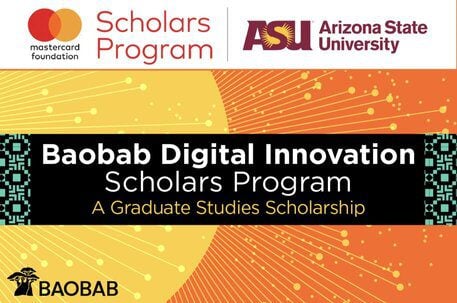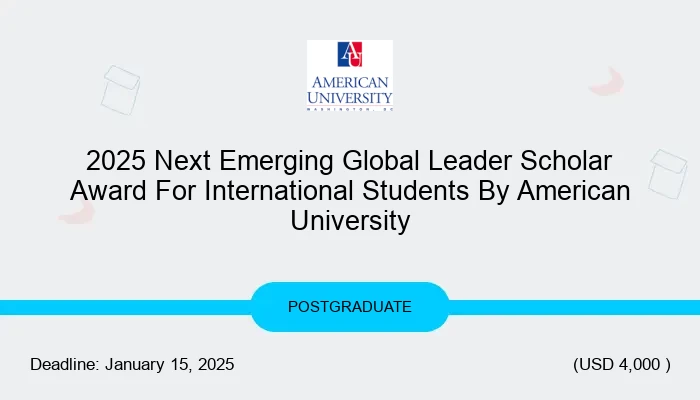PhD at Princeton University
Princeton University is a private Ivy League research university located in Princeton, New Jersey. Princeton is the 4th… The post PhD at Princeton University appeared first on Leverage Edu.


Princeton University is a private Ivy League research university located in Princeton, New Jersey. Princeton is the 4th oldest institution of higher education in the United States, having been founded in 1746 in Elizabeth as the College of New Jersey. In 1747, the institution relocated to Newark, and nine years later, to its current location. In 1896, it was formally established as a university and was renamed Princeton University. The Trustees of Princeton University administer the university, which has a $37.7 billion endowment, the greatest per-student endowment in the United States. undergraduate and postgraduate programs in the arts, social sciences, natural sciences, and engineering are available at Princeton. PhD at Princeton University is a choice for many international students because of its value and quality of education. To know more about Princeton University PhD courses, eligibility, and more then keep reading this blog!
What is a PhD?
A PhD (Doctor of Philosophy) is the highest level of academic qualification you can obtain. It is a doctoral research degree. The degree usually requires 3-4 years of full-time study leading to a thesis that makes a unique contribution to your field.

Princeton University PhD Courses
Princeton University places a premium on PhD programs that are relatively short and intensive. As a result, beyond the usual requirements for all graduate students relating to administrative status, residency, and full-time study, the Graduate School has few fundamental requirements for doctorate applicants. Also, the graduate school offers a variety of PhD programs. Let’s know more about these courses.
Philosophy
The philosophy graduate program is meant to prepare promising students for careers as philosophers and philosophy instructors. For that purpose, the program offers general training, as well as opportunities for specific research in areas of philosophical inquiry.
Music Composition
Princeton’s curriculum is fairly open, allowing students to explore their own personal compositional interests. The student’s own creative work, carried out in regular consultation with members of the faculty, lies at the heart of the program. The program is enrolled by a small number of students, and the diversity of their backgrounds and interests can be astonishing.
Ecology and Evolutionary Biology
The Department of Ecology and Evolutionary Biology offers graduate programs leading to the Doctor of Philosophy degree (PhD) at Princeton University. Evolution and genomes, ecology and the environment, behaviour and organismal biology, conservation biology, and infectious illness are among the department’s specialities. Faculty interests and research span a wide range of topics, allowing prospective students to choose their advisers from among a number of professors working in their field. Graduate students have a lot of options for integrating different fields to create new interdisciplinary work.
Operations Research and Financial Engineering
Operations Research and Financial Engineering (ORFE) degree emphasis on mathematical and computational tools. ORFE students learn a unique combination of abilities that are built on a strong foundation in probability, statistics, and optimization.
Mechanical and Aerospace Engineering
The Department of Mechanical and Aerospace Engineering’s objective is to develop leaders in engineering and applied sciences by offering a rigorous graduate program that pushes the boundaries of knowledge in our area and prepares students for jobs in academia, industry, and government. The program emphasizes gaining a wide awareness of a variety of topics, a strong understanding of a specific area, and achieving great communication skills.
Electrical and Computer Engineering
Students from all around the world enrol in the Department of Electrical and Computer Engineering’s PhD program. The majority of applicants enter the program directly after earning a bachelor’s degree in electrical engineering, computer science, or physics. Despite the fact that our PhD program is one of Princeton’s largest, its size allows students to receive individualized attention and considerable faculty interaction.
Quantitative and Computational Biology
The Princeton Program in Quantitative and Computational Biology (QCB) aims to make graduate study at the intersection of biology, the more quantitative sciences, and computation more accessible. QCB is a collaborative graduate education collaboration between the Departments of Chemistry, Chemical and Biological Engineering, Computer Science, Ecology and Evolutionary Biology, Molecular Biology, and Physics.
Neuroscience
The Neuroscience Institute’s PhD program at Prince University aims to train researchers to tackle the unanswered questions about the human brain. Students learn to employ the most up-to-date neuroscience techniques and approaches and also, how to think and develop novel techniques and ideas.
Geosciences
Princeton’s Department of Geosciences and its linked interdepartmental programs and institutes primarily focus on Earth, atmospheric, oceanic, and environmental sciences. The department comprises a wide range of scientific knowledge and activities aimed at better understanding Earth’s fundamental structure, temperature, biosphere, atmosphere, and oceans, as well as how these systems interact and evolve across time frames large and small.
Mathematics
A graduate degree in mathematics offers few requirements and many research and educational opportunities. Students at Princeton University are highly motivated individuals who come from a diverse range of backgrounds. While the graduate school encourages individual work and research, students at Princeton have a strong feeling of community. As a result, an atmosphere of enthusiasm, stimulation, mentoring, and support has been developed.
Atmospheric and Oceanic Sciences
Under the auspices of the Department of Geosciences, the Program in Atmospheric and Oceanic Sciences (AOS) offers graduate study. The Princeton AOS graduate program focuses on global climate system theoretical and numerical model investigations.
Plasma Physics
Plasmas are collections of freely moving charged particles (primarily electrons and ions) in which collective phenomena such as waves dominate the system’s activity. Many high-tech applications rely on plasmas. Fusion energy, for example, uses a high-temperature plasma as its fuel.
Astrophysical Sciences
Astrophysics is taught at the Department of Astrophysical Sciences. The department’s teachers and personnel are world leaders in theoretical and computational astrophysics, observational astronomy, astronomical surveys, and instrumentation research (both hardware and software). Modern astronomy’s exciting discoveries put the human understanding of a wide range of physical processes to the test. If you are interested in this field, you can certainly consider pursuing a PhD at Princeton University.
Psychology
The Department of Psychology’s graduate program focuses on preparing students for careers in psychology research and teaching, with specializations in cognitive neuroscience, developmental psychology, language, learning and memory, perception and cognition, inequality psychology, social neuroscience, social psychology, and systems neuroscience.
Molecular Biology
The Department of Molecular Biology’s graduate program promotes the intellectual growth of modern biologists. The Graduate School welcomes students from all walks of life and provides an educational program that goes much beyond basic biology. Princeton’s molecular biology department is a close-knit community of researchers that comprises undergraduate and graduate students, postdoctoral fellows, and teachers with a variety of but complementary interests.
Computer Science
Beginning and advanced graduate students are accepted into the Department of Computer Science for study and research leading to the M.S.E. and a PhD degree. Individual plans of study and research can be accommodated by these degree programs’ flexibility.
Anthropology
The Department of Anthropology trains students to teach sociocultural anthropology and conduct substantial original research, as well as apply anthropological concepts, discoveries, and methodologies to cross-disciplinary study, public understanding, and public policy. A PhD in Anthropology is the graduate program’s ultimate degree.
Chemical and Biological Engineering
The objective of the Department of Chemical and Biological Engineering is to educate future leaders in chemical and biological engineering by doing research that pushes their field’s boundaries. Through its PhD course, Princeton University prepares chemical and biological engineers for professions in academia, government, and industry, including teaching, research and development, entrepreneurship, and management.
Physics
The Department of Physics graduate program is heavily focused on research leading to a Doctor of Philosophy (PhD) degree. Princeton University accepts students from all walks of life and works hard to foster a feeling of community and inclusion that allows students to reach their full potential. The Physics Department has a vibrant research program that emphasizes both theoretical and experimental study.
Art and Archaeology
Princeton University’s graduate program in art history is one of the country’s oldest, and the department has played a key role in teaching teachers, scholars, and curators in this field for decades. Graduate work in this field provides some distinct advantages at Princeton. Because there are a restricted number of graduate students, all classes are small, intimate seminars with plenty of opportunities for free and informal conversation.
Similarly, Princeton University provides PhD degrees in various other fields including – Applied and computational math, Spanish and Portuguese, Slavic languages and literature, Religion, Near Eastern Studies, Musicology, German, French and Italian, English, Sociology, Population Studies, Politics, History of Science, History, Economics, Comparative literature, Classics, Civil and environmental engineering, Chemistry and Architecture.
Princeton University PhD Courses Eligibility
In order to qualify for the PhD, students are required by the Princeton University Graduate School:
- To pass the general examination in their subject
- To present an acceptable dissertation after receiving approval of the advanced degree application from the department and the Graduate School.
- To pass the final public oral examination.
Note: Any additional eligibility requirements are set at the level of different departments or programs.
Princeton University PhD Application
Princeton University offers several methods to apply including the Coalition Application, the Common Application, and the QuestBridge Application. Also, applications at Princeton University require several writing supplements and also, submitting a graded written paper.
Princeton University PhD Cost
The table given below displays the fee structure and additional cost for PhD students of Princeton University for the academic year 2023-24:
| Particulars | Fees/Cost |
| Cost of Attendance | $83,140 (INR 68.20 lakh) |
| Tuition Fees | $59,710 (INR 49 lakh) |
| Fooding | $7,980 (INR 6.55 lakh) |
| Accommodation | $11,400 (INR 9.35 lakh) |
| Miscellaneous Expenses (Approximate) | $4,050 (INR 3.32 lakh) |
Also Read: Princeton University
Princeton University PhD Financial Aid
Stipends and fellowships for different PhD programmes are as follows:
PhD in Humanities and Social Sciences
Tabulated below are financial aids for PhD students enrolled in the Humanities and Social Sciences disciplines:
| Types of Financial Aid | Amount (2023-24) |
| University Fellowship | $38,000 |
| Assistantship in Instruction Stipend | $42,000 |
Also Read: PhD in Social Science
PhD in Natural Sciences and Engineering
Here are the financial aids available to PhD students of Natural Sciences and Engineering disciplines:
| Types of Financial Aid | Amount (2023-24) |
| Assistantship in Instruction | $42,000 |
| Assistantship in Research | $40,000 |
| University First-Year Fellowship | $40,000 |
Also Read: PhD Scholarships
Planning to Study Abroad and are worried about expenses? Let Fly Finance help you!
FAQs
The length of the PhD program at Princeton University is generally five years, with few four-year programs.
There are no merit-based scholarships at Princeton University. Also, Financial aid is provided purely on the basis of the student’s needs.
A person looking forward to studying at Princeton should have a 3.9 GPA or higher. Otherwise, the candidate has to compensate with an SAT/ACT score.
We hope this blog helps you in understanding all the essential aspects of PhD at Princeton University. Sign up for your free 30 minutes of e-counselling with the Leverage Edu team on 1800 572 000 now to explore study abroad opportunities. To get additional information stay connected with Leverage Live.
The post PhD at Princeton University appeared first on Leverage Edu.


![National Examinations Council (NECO) June/July [SSCE] External Timetable For 2023/2024 Examination Exercise | Download NECO Timetable PDF File For Free Here](https://micplustech.com/wp-content/uploads/2020/02/images-33.jpeg)


![NYSC Orientation Course Date for 2024 Batch “A” Announced [Stream II]](https://allschool.ng/wp-content/uploads/2024/04/1713251491241.webp)

